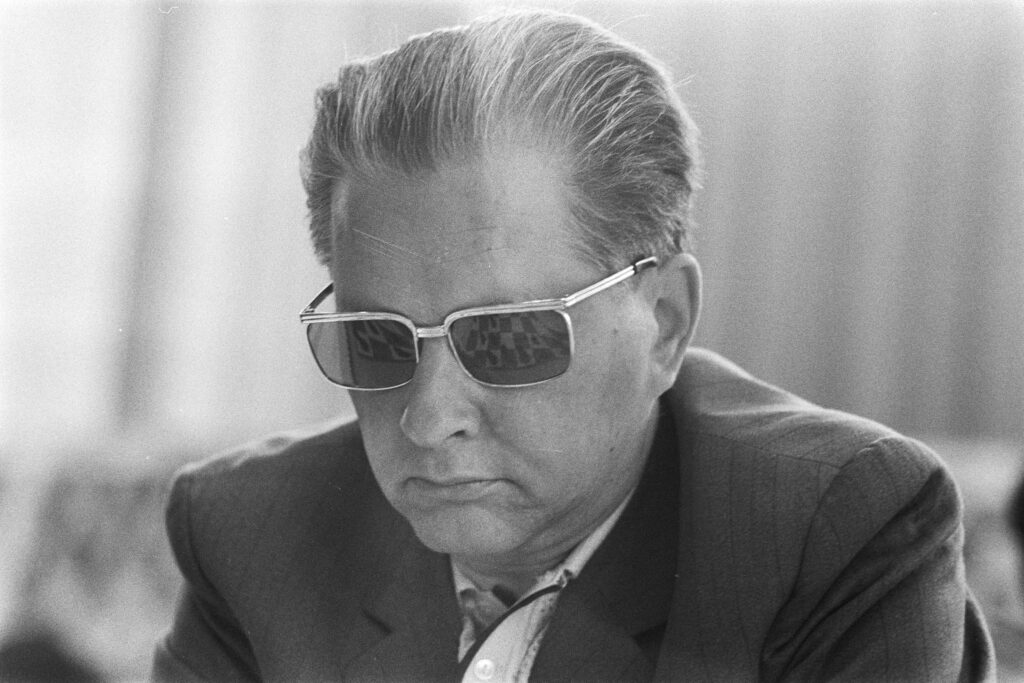Paul Keres – The Eternal Second
August 2, 2023
Blog,Chess Players
Paul Keres, an Estonian grandmaster, was one of the most esteemed and renowned chess players of
the 20th century. Born on January 7, 1916, in Tallinn, Estonia, he showed early interest and talent in
chess. At the young age of 17, he became the national champion of Estonia and quickly gained a
reputation as one of the best players of his time.

Paul Keres – source: Keres in Amsterdam (1971) (en.wikipedia.org)
Keres’ chess career reached its peak during, before, and after World War II. He regularly
participated in prestigious tournaments and was well-known for his exceptional tactical style of
play, profound opening knowledge, and outstanding preparation for games.
Between 1935 and 1965, Keres impressively won the Candidates Tournament ten times, qualifying
him for the battle for the title of the World Chess Champion. He was a serious rival to many great
chess players of that era, including Mikhail Botvinnik, Mikhail Tal, Mikhail Smyslov, and Bobby
Fischer.
The Eternal Second
Paul Keres was famously known as “The Eternal Second” in the world of chess. This nickname
arose from the fact that Keres often secured high positions in prestigious chess tournaments but
never managed to win the title of World Chess Champion. Despite consistently being among the top
players of his time, he was always just a few steps away from the pinnacle of success.
The closest Keres came to winning the World Championship was in 1948. In that Candidates
Tournament, organized after the death of the current champion Alexander Alekhine, Keres secured
the second place, with Mikhail Botvinnik becoming the new World Champion. Some
circumstances, including suspicious events during the tournament, led to a popular theory that the
Soviets manipulated the results to favor Botvinnik’s victory.
World Championship
The closest Keres came to winning the World Championship was in 1948. In that Candidates
Tournament, organized after the death of the current champion Alexander Alekhine, Keres secured
the second place, with Mikhail Botvinnik becoming the new World Champion. Some
circumstances, including suspicious events during the tournament, led to a popular theory that the
Soviets manipulated the results to favor Botvinnik’s victory.
Keres’ “Eternal Second” status did not diminish his popularity and respect among his colleagues and
chess enthusiasts. He was admired not only for his chess prowess but also for his modesty, integrity,
and sportsmanship. He was beloved within the chess community, and his games served as an
inspiration for many chess players who sought to improve and learn from his moves. Beyond chess,
he was known for his dignity and sportsmanship outside the board.
Keres was particularly popular in his homeland, Estonia, where he was considered a national hero.
His chess achievements represented a symbol of hope and pride for his people. During Estonia’s
period under Soviet occupation, Keres stood as one of the rare bright spots for the Estonian nation,
providing them with a sense of confidence and identity.
Although he never won the World Championship, Keres had a significant impact on the
development of chess and became a legendary figure inspiring generations of chess players. His
passing on June 5, 1975, in Helsinki, Finland, during a tournament, was a great loss to the chess
world, but his legacy continues to live on through generations of chess players who still admire his
games and contributions to the game of chess.
